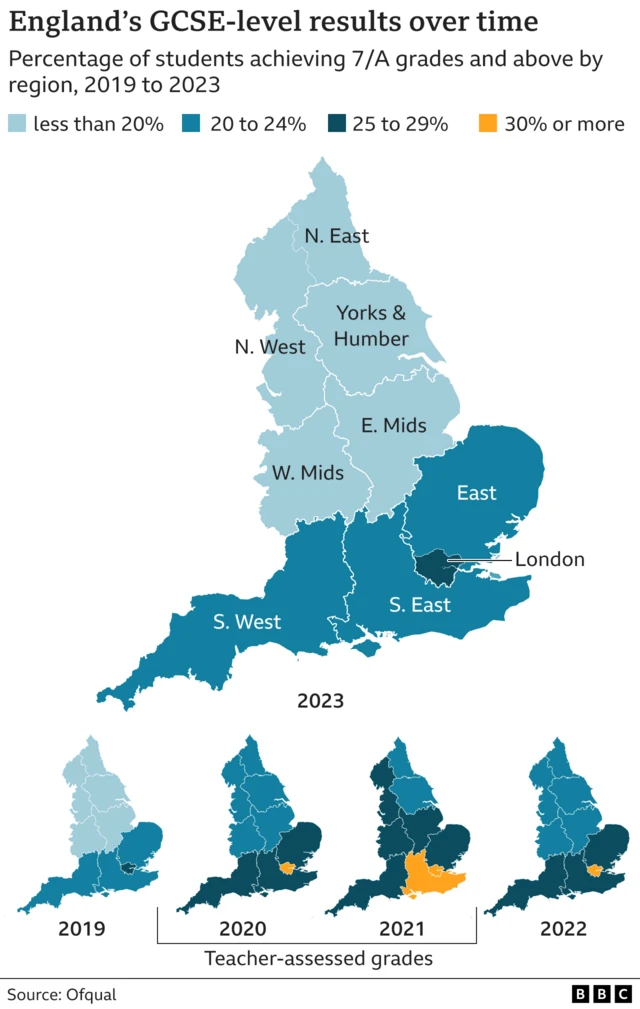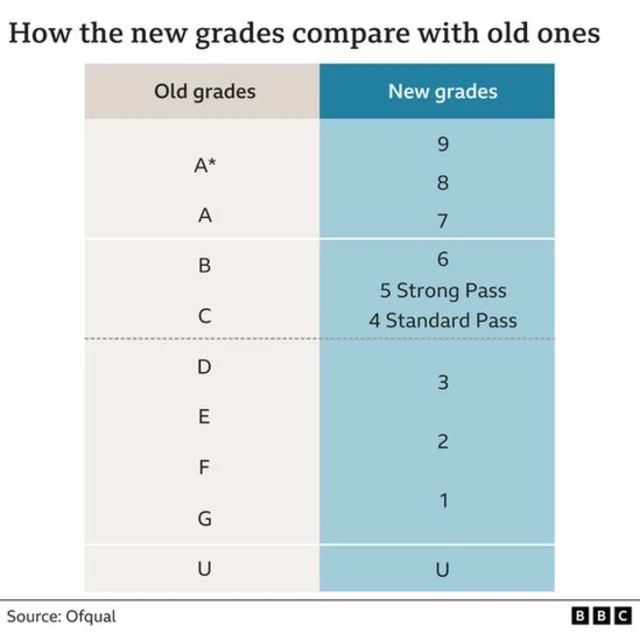'I juggled revision with shifts at mum's restaurant'published at 12:47 BST 24 August 2023
Rebekah Wilson
Reporting from Abbey Community College, County Antrim, NI
 Image source, Lily Shek
Image source, Lily ShekHewis with his proud mum
Hewis had a busy few months in the lead-up to his exams, juggling revision with helping his mum in her Chinese restaurant.
Speaking after getting his results at his school in County Antrim, Hewis says he feels “pretty good today as the hard work paid off".
Hewis’s mum adds: “I am so proud, I’m so busy and Hewis is always by himself. He goes to school and then works in the restaurant and here he has done everything, and passed, so he can go and do his A-levels.”












